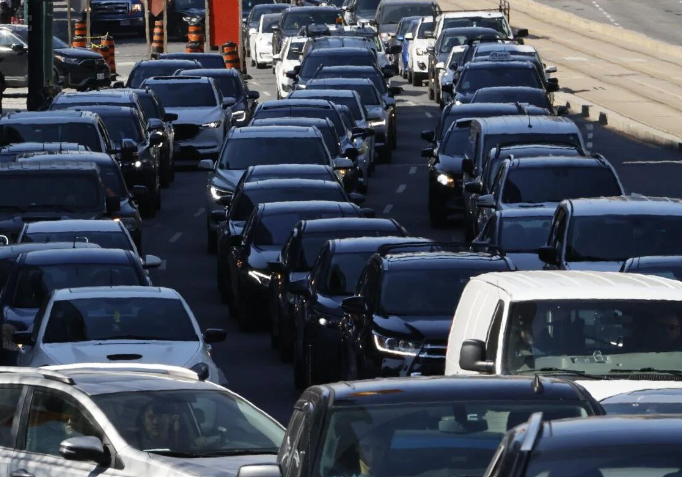In July, the Board released new polling on how traffic congestion impacts residents in the Toronto region. Shadi Hagag, Founder and CEO of Trans-Plan, a transportation engineering firm based in Liberty Village, and a member of the Board’s Congestion Task Force weighs in on the results, and what we can learn from this new data.
The Board’s latest IPSOS polling paints a stark picture of the congestion crisis gripping the region. With 86 per cent of respondents agreeing this has reached crisis levels, this issue demands urgent attention.
One of the most striking findings from the poll for me personally, is the disproportionate impact of congestion on the region’s younger demographic.
Younger residents are not only more affected by congestion but are more concerned about its impacts. This demographic is at a critical stage in their careers, and the daily grind of long commutes is taking a toll on their productivity and job satisfaction. Many are even considering staying in jobs offering a more convenient commute over those that might better align with their professional growth. This trend highlights a significant economic story: the potential stifling of career advancement and economic mobility due to congestion.
The poll also revealed that 64 per cent of respondents are reluctant to travel to work because of congestion. This reluctance to commute is not just a personal inconvenience; it has broader implications for our regional economy. When people choose jobs based on their commute rather than professional growth, it can lead to a mismatch of skills and opportunities, ultimately affecting productivity and economic output.

Gherson: Sick of gridlock, young Torontonians are looking to flee the city. Here is how we keep them
A key area for potential improvement highlighted by the poll is construction coordination. With 68 per cent of respondents citing construction as the main cause of congestion, there is a clear need for better planning and coordination among stakeholders.
Implementing 24-hour construction schedules, as supported by 74 per cent of respondents, could significantly reduce construction time and alleviate congestion. However, this requires a concerted effort from city planners, transit agencies, and construction partners to work together more effectively.
Looking at global examples, like Madrid’s ability to complete an underground highway in just two years, provides an example of what’s possible when bold and decisive action is taken. Toronto should adopt a similar mindset when implementing solutions to showcase the best our city has to offer, especially with major events like the World Cup on the horizon. It’s not just about short-term fixes, but building a long-term vision for the city’s transit and congestion management.
The poll underscores the need for strong leadership to push for sustainable changes. Treating congestion like the crisis it is requires a shift in rhetoric and action. Building an action plan that is both bold and visionary is essential. This includes holding stakeholders accountable and ensuring recommendations are not just made but implemented. The city needs a clear short-term plan to bring immediate relief and a long-term strategy to manage future growth.
Toronto’s congestion crisis is a complex issue requiring a multifaceted approach. By focusing on the economic impact on younger residents, improving construction coordination, and learning from global examples, the city can begin to address this pressing issue. It is time for bold leadership and decisive action to ensure Toronto remains a vibrant and thriving city for all.
The Board has convened a Task Force of senior business leaders to identify and champion practical, high-impact solutions to tackle our congestion crisis. These leaders have a strong history of problem-solving and implementing bold solutions.Task Force outputs and recommendations will focus on immediate measures to reduce current congestion levels, as well as a comprehensive, forward-looking plan – one that considers projected population growth to guide the region toward a more efficient and integrated transportation system.

